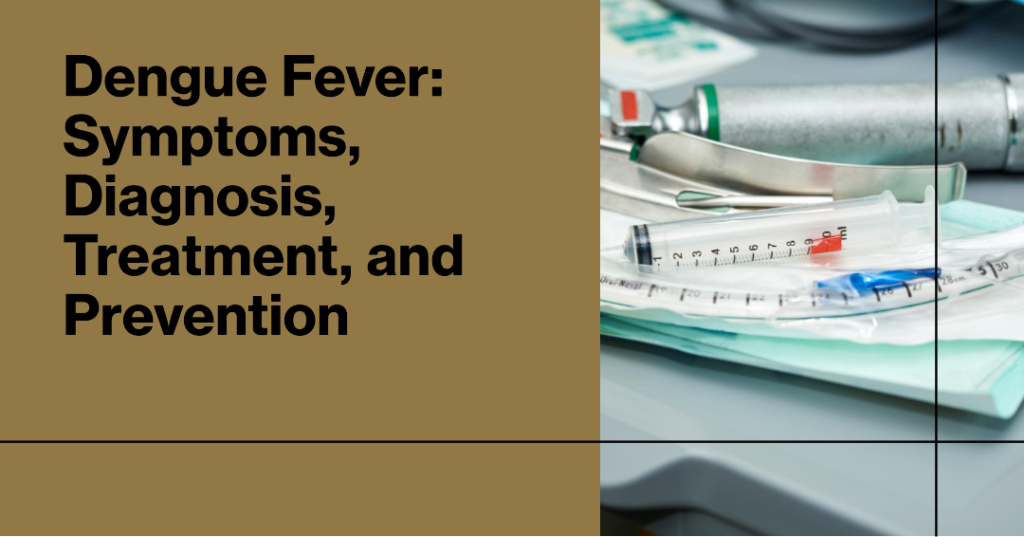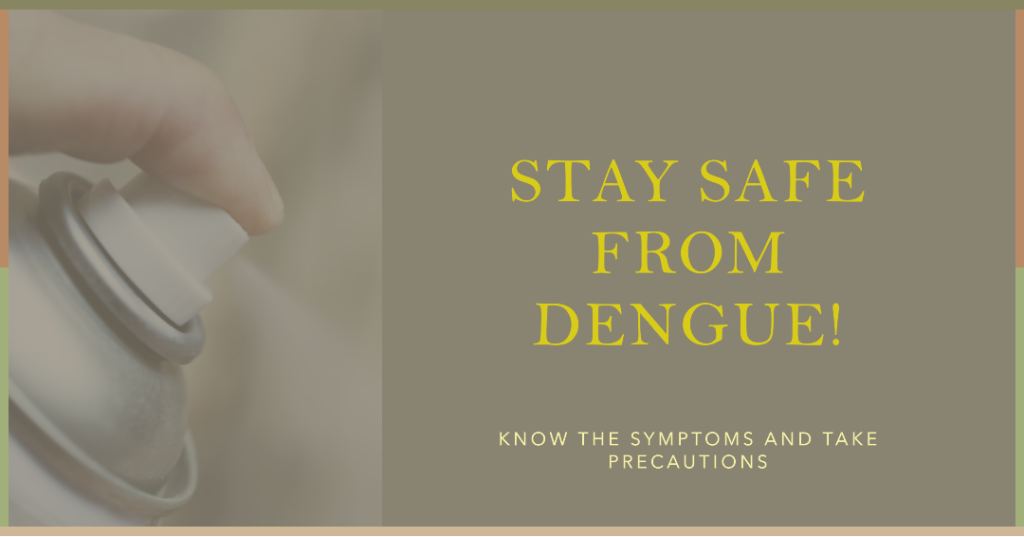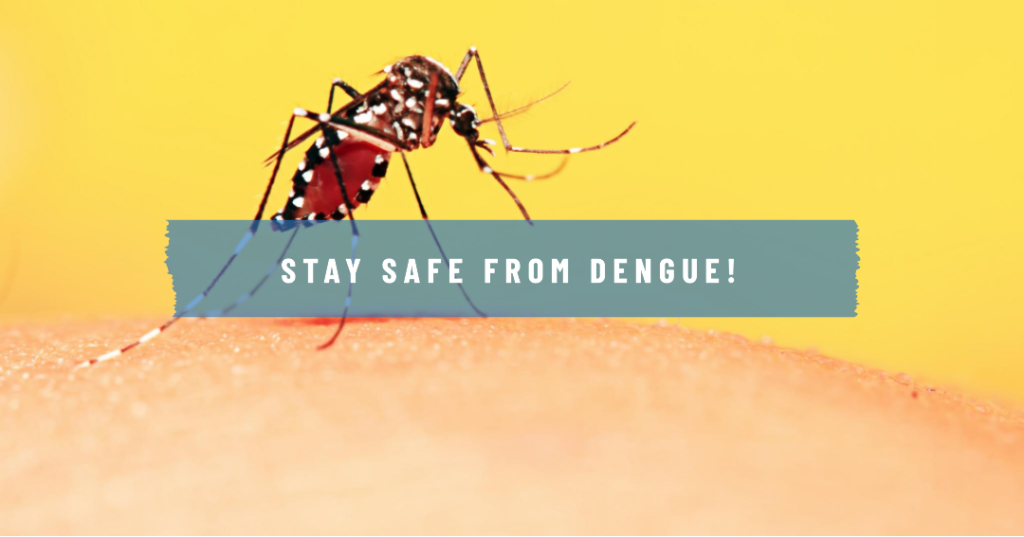Are you ready to learn about the most relentless, mosquito-borne illness that threatens your well-being? Look no further than this article on dengue fever. Discover the telltale symptoms, how doctors diagnose it, the latest treatment options, and effective prevention strategies. Before you head to the doctor, make sure you consider these important factors. Stay informed, stay safe, and arm yourself with the knowledge to combat this formidable enemy.

Key Takeaways
- Symptoms of dengue fever include sudden onset of high fever, severe headache, joint pain, pain behind the eyes, and muscle and bone pain.
- Diagnosing dengue fever involves blood tests such as the NS1 antigen test and PCR test, which have high accuracy rates in detecting the infection and differentiating it from other illnesses like malaria and Zika virus.
- Treatment for dengue fever focuses on supportive care for symptom management, including the use of over-the-counter pain relievers like acetaminophen. Severe cases may require hospitalization intravenous fluids and blood transfusions.
- Prevention measures for dengue fever include vaccination with Dengvaxia, mosquito control measures, and the use of mosquito repellents containing DEET or picaridin. Practicing good hygiene and maintaining a healthy lifestyle can also help reduce the risk of developing the illness.
Dengue Fever Symptoms
Do you know what symptoms to look out for when it comes to dengue fever? Being aware of the signs and symptoms is crucial for early detection and timely treatment. Dengue fever typically begins with a sudden onset of high fever, often accompanied by severe headache and joint pain. You may also experience pain behind the eyes, muscle and bone pain, and a rash that appears two to five days after the onset of fever. These symptoms can last for several days and can be quite debilitating.

If left untreated, dengue fever can progress to a more severe form known as dengue hemorrhagic fever (DHF). DHF is characterized by bleeding, low platelet count, and plasma leakage, which can lead to organ failure and even death in severe cases. It is crucial to seek medical attention if you experience any of the warning signs, such as severe abdominal pain, persistent vomiting, bleeding gums, difficulty breathing, or fatigue.
Recognizing the symptoms and seeking prompt medical care can help prevent disease progression and potential complications. Early diagnosis and treatment are key to managing dengue fever effectively. So, let’s delve into the next section and learn about the diagnostic methods for identifying dengue fever.
Dengue Fever Diagnosis
You should consider getting a blood test if you suspect dengue fever, as it is a reliable and accurate method of diagnosis. Here are three reasons why a blood test is crucial for diagnosing dengue fever:
- Diagnosis accuracy: Blood tests, such as the NS1 antigen test and the PCR test, have high accuracy rates in detecting dengue fever. These tests can identify the presence of the dengue virus in your blood, providing a definitive diagnosis.
- Differentiating from other illnesses: Dengue fever shares symptoms with other diseases like malaria and Zika virus. A blood test can help distinguish dengue fever from these similar illnesses, ensuring you receive the appropriate treatment.
- Early detection: Early diagnosis is essential for managing dengue fever effectively. A blood test can detect the virus even before symptoms appear, allowing for timely medical intervention and preventing the disease from progressing to a severe stage.
Getting a blood test for dengue fever is crucial due to its diagnosis accuracy, ability to differentiate from other illnesses, and early detection capabilities. By pursuing this diagnostic test, you can ensure timely treatment and improve your chances of a successful recovery.
Now that we have discussed the diagnosis of dengue fever, let’s move on to exploring the various treatment options available.
Similar Post: Malaria Symptoms: Diagnosis, Treatment And Prevention
Dengue Fever Treatment
Have you considered which treatment options are most effective for dengue fever? When it comes to managing this viral infection, there are a few medication options available that can help alleviate symptoms and prevent complications. It’s important to note that there is currently no specific antiviral treatment for dengue fever, so the focus is on supportive care to manage symptoms and prevent further complications.

For mild cases, over-the-counter pain relievers such as acetaminophen can help reduce fever and alleviate pain. However, it is crucial to avoid non-steroidal anti-inflammatory drugs (NSAIDs) like ibuprofen or aspirin, as they can increase the risk of bleeding.
In more severe cases, hospitalization may be required for close monitoring and management of symptoms. Intravenous fluids may be administered to maintain hydration and prevent dehydration. Blood transfusions may also be necessary in cases of severe bleeding.
Additionally, there has been some discussion about alternative therapies for dengue fever. However, it is important to note that there is limited scientific evidence to support the efficacy of these treatments. It is always recommended to consult with a healthcare professional before considering any alternative therapies.
Now that we have discussed the treatment options for dengue fever, let’s move on to the next important topic: prevention.
Dengue Fever Prevention
To effectively prevent dengue fever, it’s essential to follow proper hygiene practices and use insect repellent. Dengue is a viral disease transmitted by mosquitoes, and it can cause severe symptoms such as high fever, severe headache, joint and muscle pain, and rash. Here are three important measures you can take to prevent dengue fever:
- Vaccination benefits: Getting vaccinated against dengue can significantly reduce your risk of contracting the disease. Vaccines like Dengvaxia have been developed to provide protection against all four dengue virus serotypes. Consult with your healthcare provider to determine if vaccination is recommended for you or your family members.
Mosquito control: Mosquitoes are the primary carriers of the dengue virus, so controlling their population is crucial in preventing the spread of the disease. Here are some effective mosquito control measures:
- Remove stagnant water sources where mosquitoes breed, such as flower pots, buckets, and discarded tires.
- Use mosquito nets or screens on windows and doors to prevent mosquitoes from entering your home.
- Apply insecticide to outdoor areas and use mosquito repellents containing DEET or picaridin to protect yourself from mosquito bites.
What to consider before visiting a Doctor
When scheduling an appointment, consider the availability of the doctor as a key factor in determining your visit. It is important to choose a doctor who has a schedule that aligns with your needs, as this will ensure that you can receive the necessary care in a timely manner.
Additionally, it is crucial to provide your doctor with a comprehensive patient history during your visit. This includes information about your past medical conditions, allergies, and medications you are currently taking. By sharing this information, your doctor can make more informed decisions about your treatment plan.
In addition to seeking professional medical care, there are also self-care measures that you can take to promote your overall well-being. These measures include practicing good hygiene, such as washing your hands regularly and covering your mouth and nose when coughing or sneezing.
It is also important to maintain a healthy lifestyle by eating nutritious foods, exercising regularly, and getting enough rest. Engaging in these self-care measures can help strengthen your immune system and reduce your risk of developing certain illnesses.
Frequently Asked Questions
How Long Does It Take for Dengue Fever Symptoms to Appear After Being Bitten by an Infected Mosquito?
After being bitten by an infected mosquito, dengue fever symptoms can take anywhere from 3 to 14 days to appear. During this incubation period, you may experience early symptoms like high fever, severe headache, joint and muscle pain, and rash.
Can Dengue Fever Be Transmitted From Person to Person?
Dengue fever can be transmitted from person to person through the bite of an infected mosquito. It is important to take precautions to prevent mosquito bites, especially during pregnancy, as it can have serious consequences.
Is There a Specific Age Group That Is More Susceptible to Dengue Fever?
Are you wondering if there’s a specific age group more susceptible to dengue fever? Well, when it comes to age susceptibility, everyone is at risk. However, certain factors can increase your chances. Stay informed and cautious.
Are There Any Long-Term Complications or Side Effects Associated With Dengue Fever?
Long-term complications and side effects can occur with dengue fever. These may include organ damage, such as liver and heart problems, as well as neurological complications. It’s important to seek medical attention for proper diagnosis and treatment.
Can Dengue Fever Be Prevented Through Vaccination?
Sure, you’re wondering if dengue fever can be prevented through vaccination. Well, the effectiveness of Dengue fever vaccination varies, and the availability of the vaccine globally is limited.
Conclusion
In conclusion, dengue fever is a serious illness that can cause a range of symptoms, including high fever, severe headache, and joint pain. Early diagnosis is crucial for prompt treatment and to prevent complications. Treatment mainly involves managing the symptoms and providing supportive care.
Prevention strategies, such as eliminating mosquito breeding sites and using protective measures, are essential in controlling the spread of dengue fever. While there are ongoing theories about potential vaccines and treatments, further research is needed to validate their effectiveness.